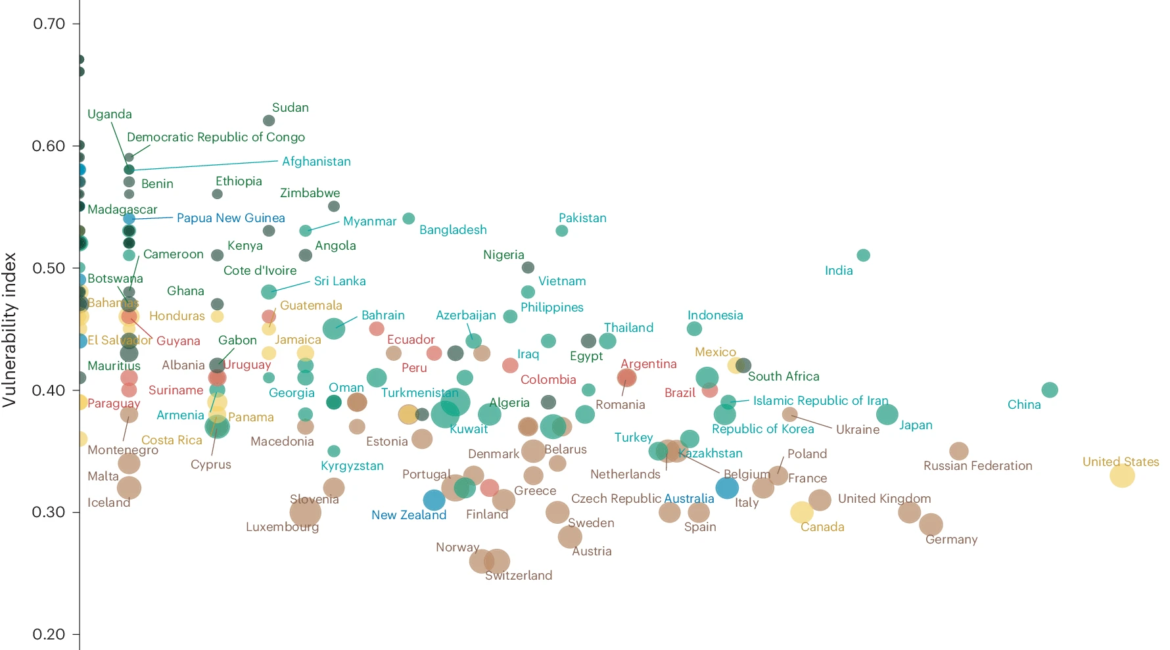Collaborators: Joseph L.-H. Tsui, Rosario Evans Pena, Monika Moir, Rhys P. D. Inward, Eduan Wilkinson, James Emmanuel San, Jenicca Poongavanan, Sumali Bajaj, Bernardo Gutierrez, Abhishek Dasgupta, Tulio de Oliveira, Moritz U. G. Kraemer, Houriiyah Tegally, Prathyush Sambaturu
Summary: Health consequences arising from climate change are threatening to offset advances made to reduce the damage of infectious diseases, which vary by region and the resilience of the local health system. Here we discuss how climate change-related migrations and infectious disease burden are linked through various processes, such as the expansion of pathogens into non-endemic areas, overcrowding in new informal settlements, and the increased proximity of disease vectors and susceptible human populations. Countries that are predicted to have the highest burden are those that have made the least contribution to climate change. Further studies are needed to generate robust evidence on the potential consequences of climate change-related human movements and migration, as well as identify effective and bespoke short- and long-term interventions.
Publication Date: 2024-07-30
Journal: Nature Climate Change
DOI: https://doi.org/10.1038/s41558-024-02078-z

